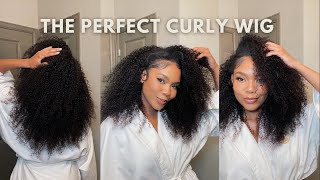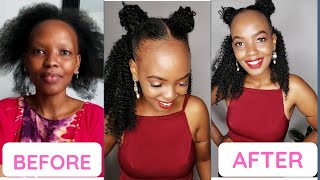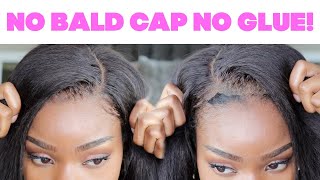How To Protect Natural Hair Under A Wig
- Posted on 05 November, 2021
- Hair Knowledge
- By Anonymous
Nowadays, wigs are getting more and more popular among people, especially for those girls who want to keep up with the trend of the times but don’t want to change their natural hair. Although wigs are the ultimate protective style, we still need to care for natural hair and scalp under a wig. Here are some tips about how to protect natural hair and scalp under a wig.
Wash Natural Hair Before Wearing A Wig

As we all know, prepare your natural hair before wearing a lace front wig is a key step. In this washing process, you must make sure your natural hair is very clean and there is no build-up of any previous products that may cause breakage. After all, products, sweat, and dirt will cause scalp buildup after putting on a wig, which will make dandruff worse, increase the risk of scalp acne, and even lead to the inflammation of the scalp.
Of course, in your daily washing, it is very important to use a suitable shampoo. For example, you need some shampoo that is gentle but tough enough to do this job. In order to get the best of both worlds, we sincerely recommend you use a sulfate-free shampoo to keep your hair fresh and clean, remove dirt without taking moisture away.
Moisturize Natural Hair
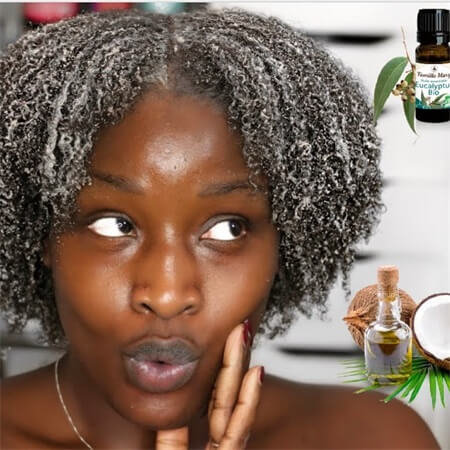
There is no doubt that Afro-Caribbean hair textures are notorious for needing as much moisture as possible. And due to the curly pattern of natural hair, natural scalp oil is often more difficult to flow along the hair strands, which usually leads to hair breakage. Therefore, please use some oils to deep condition natural hair before your braid your natural hair down to keep it moisturized.
In fact, wig combs and wig clips also will cause breakage and friction. Therefore, you had better apply evenly some potent leave-in conditioner to your natural hair and then blow dry it, which can protect hair from heat and add enough shine without making it slippery and difficult to knit. Once your hair is braided, please use a serum to lightly coat your braids to further reduce friction and frizz caused by clips and wig caps.
Style Your Natural Hair Under A Wig
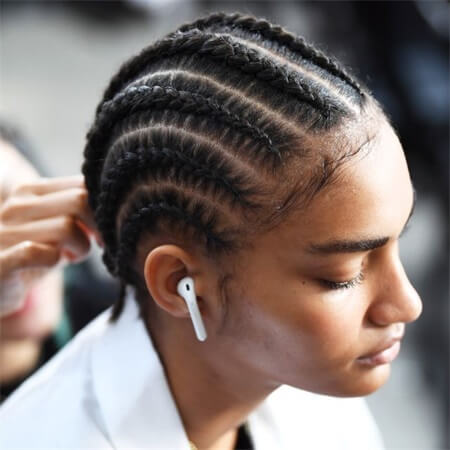
Why not consider becoming an advocate of cornrows or twist under a HD lace wig? It is easy to finish and can help you lay your wig flat for a more natural look. I n addition, it is a great protective style for your natural hair. More importantly, it can last for weeks at a time, which means you won’t manipulate your hair too much or encourage hair breakage.
Keep Your Natural Hair Dry Before Wearing A Wig

In order to maintain your natural hair under a lace wig, you must make sure the hair is completely dry. Because not only will having wet hair under a wig make you feel extremely uncomfortable, but also promote the growth of nasty bacteria. Even the moisture mixes with heat from the body and extra warmth of the wig layer, which will cause mold and bacteria to grow.
Wear A Wig Cap Under The Wig
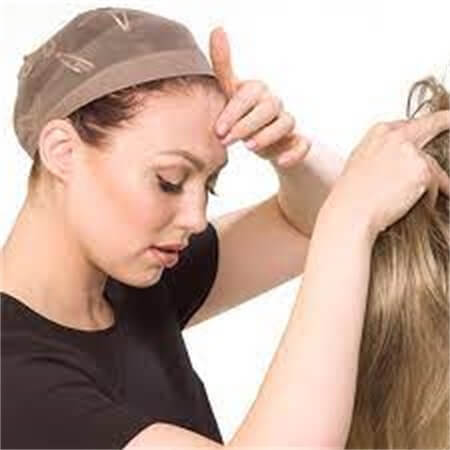
As an inexpensive and effective way of protecting your natural hair, wig caps can act as a protective barrier between wig and hair, and perfectly keep your hair in place under the wig.
Clean Hair And Scalp Regularly
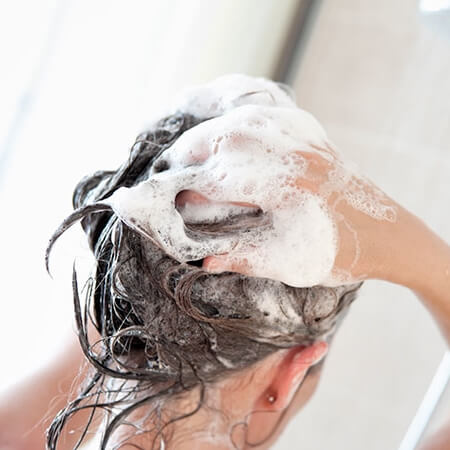
You need to clean your hair and scalp regularly but make sure not to wash your hair too often as it can lead to excessive dryness or greasy. Just like your body tries to overcompensate for lack of moisture. We recommend initially washing your hair every 10 days and then adjusting accordingly depending on how hot or sweaty your scalp is throughout the day. For instance, if you exercise a lot and sweat a lot, you may find you need to wash your hair more often.
Clean Your Hairline Before Bed
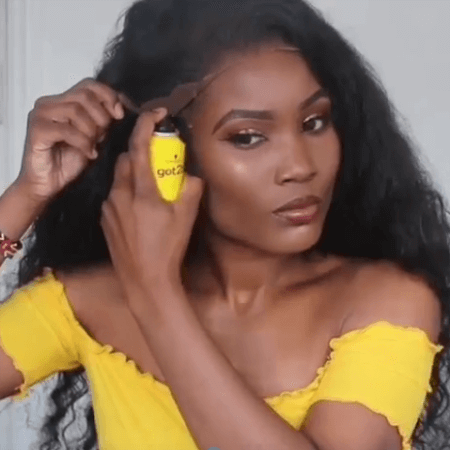
If you prefer to use strong gels or adhesive to hold the wig on your head, it is very essential to clean thoroughly your hairline and skin every night. Because if these mushy products are not removed properly, they may cause breakage and thin edges. And in order to safely remove the lace front wig and product residue, like edge control, mousse, gel, and so on, we suggest applying some alcohol as an ideal option for lifting the lace front wig as it won’t damage your lace front wig.
Take Off Wig At Night

Whether you are sleeping or not, if a wig is too tight, it will cause friction along the hairline, thus result in traction alopecia. So you are sure to take the wig off at night, especially when sleeping. If you are taking your wig off daily and want to preserve the quality of braids underneath the wig, sleeping with a satin cap on can protect your hair strands from frizzing while you have a rest at night.
Take Your Natural And Scalp A Break
If you have natural hair under a wig for a long period of time, it would be better to give your natural hair a break for a few days. For example, when you’re relaxing at home, you choose to not wearing a wig, which gives it a healthy dose of air and sunshine that can contribute towards keeping your natural hair healthy.
Massage Your Scalp As Much As Possible
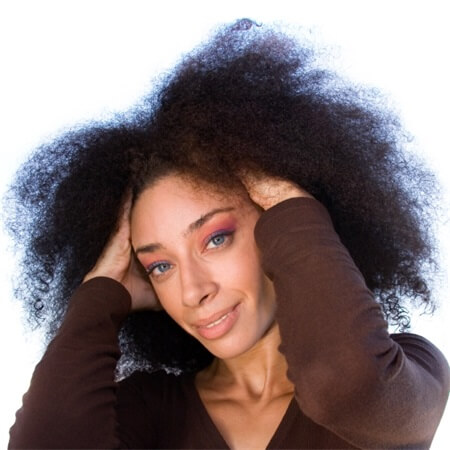
Putting on a wig tightly on your head sometimes will make the blood flow to your scalp be reduced. Therefore, try to take your wig and massage your scalp as it promotes a healthy blood flow and helps your natural hair to grow out under the headband wig.
Trim Hair At Fixed Period
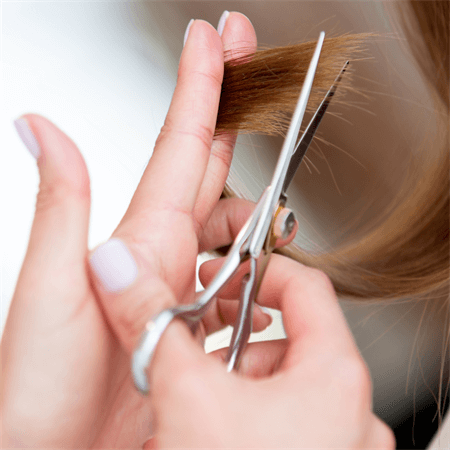
Although you may wear a wig every day, it’s still necessary that you have a regular trim to remove split ends and damaged hair. Generally, your hair should be trimmed every 6 to 8 weeks to keeps it healthy and promotes growth.
What do you think of these tips about how to take care of natural hair under a wig? If you have a better one, welcome to comment below.

